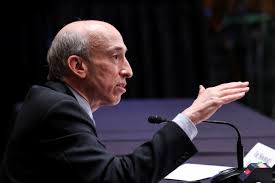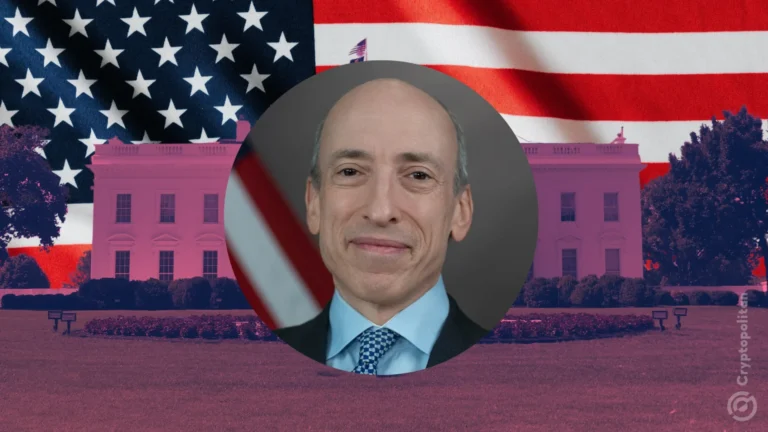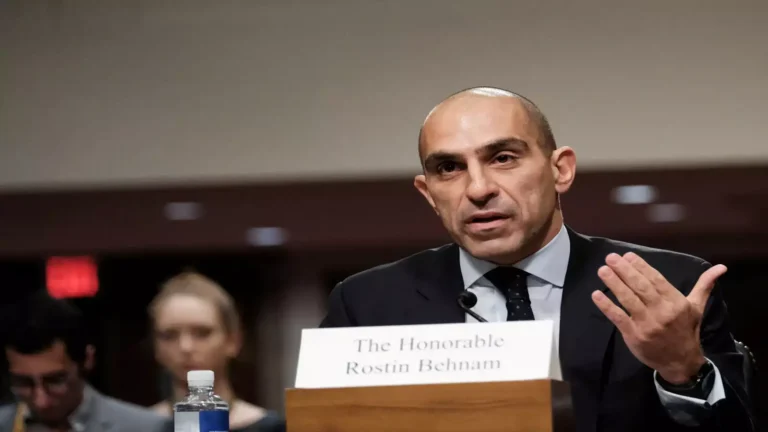Hook: Why does the crypto industry clash so fiercely with U.S. regulators? As outgoing SEC Chair Gary Gensler leaves office, he defends his bold moves against a rapidly evolving digital frontier.
The Idea Behind the Article
This article focuses on Gary Gensler, the outgoing chair of the U.S. Securities and Exchange Commission (SEC), and his controversial stance on cryptocurrency regulation. With less than two weeks before stepping down, Gensler reflects on his time at the SEC, emphasizing the challenges and actions taken during his tenure to enforce stricter rules on crypto. He claims the crypto industry is filled with “bad actors” and remains largely “noncompliant,” making it one of the most contentious sectors he has overseen.
At its core, the article highlights a regulatory battle between the SEC and the fast-evolving world of digital assets, showing how traditional laws clash with new technologies. Gensler’s strong stance on cryptocurrencies, particularly labeling many as securities and demanding compliance, has created tension within the industry.
Why This Is Important for Your Knowledge
Understanding Gensler’s perspective offers you insights into the larger regulatory framework surrounding cryptocurrencies. Knowing how governments regulate crypto is essential for making informed decisions as an investor, trader, or tech enthusiast. Here’s why this matters:
- Regulatory Environment: Governments shape how crypto evolves. If you know the rules, you can better understand market trends and anticipate risks.
- Investor Protection: Gensler’s focus on cracking down on fraud (“bad actors”) aims to protect people from scams, helping you stay cautious in this volatile field.
- Innovation vs. Regulation: Learning about this tension gives you a clearer picture of the battle between innovation in crypto and the need for oversight.
Key Points and Terms to Remember
- Securities: Gensler believes most cryptocurrencies are securities, meaning they should follow the same laws as stocks.
- Bad Actors: He accuses many in the crypto space of engaging in scams or avoiding legal compliance.
- Noncompliance: The crypto industry argues that current rules are outdated and don’t fit the digital asset space.
- Enforcement Actions: The SEC has taken legal action against major crypto projects like Ripple, shaping the industry’s future.
- Bitcoin vs. Everything Else: Gensler separates Bitcoin as unique, implying it’s more legitimate compared to other cryptocurrencies.
Steps to Deepen Your Understanding
- Follow SEC Policies: Research how the SEC regulates crypto. Look into cases like Ripple (XRP) to understand what enforcement actions mean for the market.
- Learn the Basics of Securities Law: Grasp why some cryptocurrencies are labeled as securities and what that entails.
- Understand Bitcoin’s Unique Role: Study why Bitcoin is often treated differently from other cryptocurrencies.
- Explore the Debate: Read about arguments from both sides—why regulators like Gensler want stricter rules, and why the industry resists.
- Track Leadership Changes: Gensler’s departure and the new chair’s stance could signal shifts in crypto policy. Stay updated on developments.
Why This Builds Your Knowledge
This article is a gateway to understanding the crucial relationship between crypto and regulation. By learning about key players like Gensler and landmark legal battles, you’ll develop a clearer view of how governments influence crypto’s growth. This knowledge not only prepares you to navigate the risks but also equips you to identify opportunities in this rapidly evolving field.
Understanding these dynamics is like learning the rules of a game—you can play smarter and stay ahead. Crypto isn’t just about technology; it’s also about how systems of power adapt to change. This is your chance to see history unfold.



